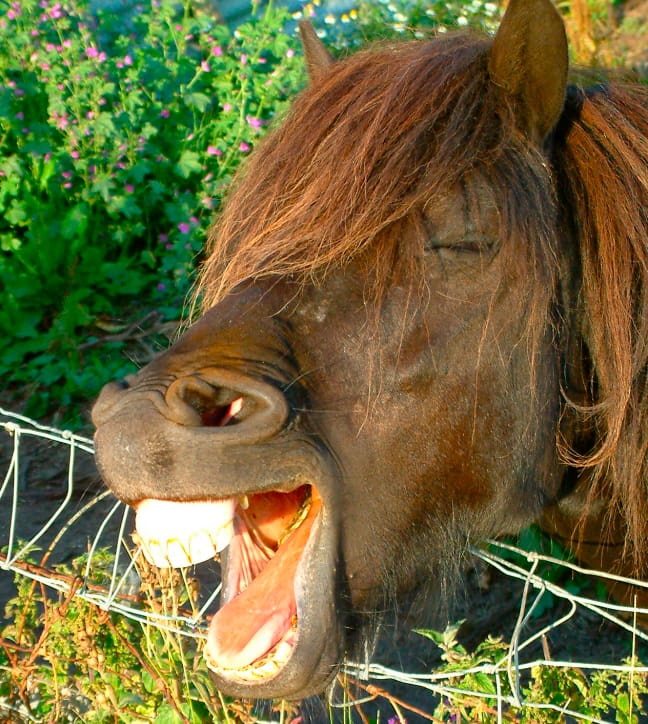don't look a gift horse in the mouth

The proverb don't look a gift horse in the mouth dates back to antiquity. The phrase’s underlying metaphor is that a horse’s age can be judged by examining its teeth, and it is rude to question something that is freely given. There are calques of the ancient proverb in many present-day European languages.
Jerome references the proverb in the prologue to his commentary on Paul’s letter to the Ephesians, written in 386 C.E., when he takes aim at his critics:
Non digne Graeca in Latinum transfero: aut Graecos lege (si ejusdem linguae habes scientiam); aut si tantum Latinus es, noli de gratuito munere judicare, et, ut vulgare proverbium est: Equi dentes inspicere donati.
(Do I not translate Greek words into Latin properly? Then read the Greeks, if you have knowledge of that language, or if you have only Latin, do not judge a free gift and, as the common proverb goes, look a gift‐horse in the mouth.)
An early English version of the proverb can be found in John Stanbridge’s c. 1509 Vulgaria, a a book of Latin–English vocabulary that contains collection of proverbs:
A gyuen hors may not be loked in the tethe
A form of the maxim that is more familiar to us today can be found in John Heywood’s 1546 book of proverbs:
Where gyfts be gyuen freely, est west north or south,
No man ought to loke a geuen hors in the mouth.
Sources:
Heywood, John. A Dialogue Conteinyng the Nomber in Effect of All the Prouerbes in the Englishe Tongue. London: Thomas Berthelet, 1546, sig. B2v. ProQuest: Early English Books Online (EEBO).
Jerome. “Prologus.” Commentariorum in Epistolam ad Ephesios Libri Tres. ProQuest: Patrologia Latina, 26:439B.
Oxford English Dictionary, second edition, 1989, s.v. horse, n.
Stanbridge, John. Vlgaria Stanbrigi. c. 1509, sig. C4r. Archive.org.
Tréguer, Pascal. “Meaning and Origin of ‘Don’t Look a Gift Horse in the Mouth.’” Wordhistories.net, 4 June 2017.
Photo credit: Rachel C., 2005. Wikimedia Commons. Licensed under a Creative Commons Attribution 2.0 Generic license.